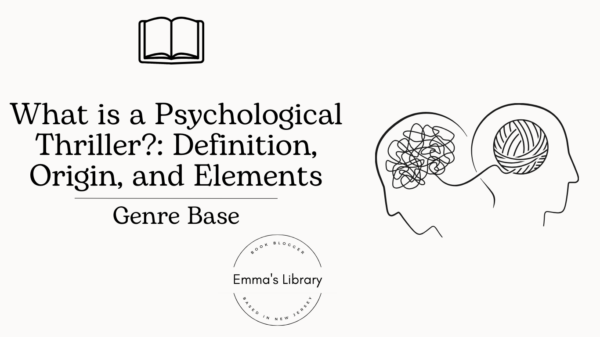
The vast realm of thriller books has given birth to numerous sub-genres, each with its own unique flavor. Among these, psychological thrillers stand out for their deep dives into the human mind, entwining the reader’s psyche with intricate plots and intense emotional play.
Defining a Psychological Thriller
A psychological thriller is a sub-genre of the thriller category, emphasizing the unstable emotional or psychological states of its characters. Rather than relying on physical challenges or external adversaries, the conflict is often internal, rooted in the mind.
Origin of Psychological Thrillers
The origins of psychological thrillers trace back to Gothic literature of the 18th century, where the human psyche was often a central theme. Over time, as psychology became a more defined and studied field, narratives began to explore deeper into characters’ minds. Books such as “Dr. Jekyll and Mr. Hyde” by Robert Louis Stevenson or the works of Edgar Allan Poe laid foundational stones, exploring dualities of the human mind and the dark recesses of one’s psyche.
Key Elements of a Psychological Thriller
The allure of psychological thrillers lies in their distinct features:
- Complex Characters: Protagonists often grapple with their own psyche, battling internal demons, past traumas, or complex relationships.
- Unreliable Narrators: The story may be told from the perspective of a character whose credibility is compromised, adding layers of uncertainty.
- Mind Games: Expect twists, turns, and cerebral challenges that keep readers guessing until the very end.
- Emotional Intensity: These stories dive deep into emotions, often making readers question their own perceptions and feelings.
Popular Psychological Thriller Authors
Many authors have masterfully contributed to the genre, with works that have left indelible marks:
- Gillian Flynn with her groundbreaking “Gone Girl”.
- Paula Hawkins and the mesmerizing narrative of “The Girl on the Train”.
- Shutter Island by Dennis Lehane, a tale of haunting suspense and revelation.
Why Psychological Thrillers Resonate
These novels tap into our innate curiosity about the human mind and its complexities. By challenging our perceptions, beliefs, and emotions, psychological thrillers offer an immersive reading experience, pushing us to confront our own vulnerabilities.
Conclusion: The Timeless Allure of Psychological Thrillers
In a world filled with uncertainties and complexities, psychological thrillers act as mirrors, reflecting the depths of human emotions, vulnerabilities, and strengths. Their ability to resonate with readers, challenge perceptions, and evoke intense emotional reactions ensures their enduring popularity in the literary world.